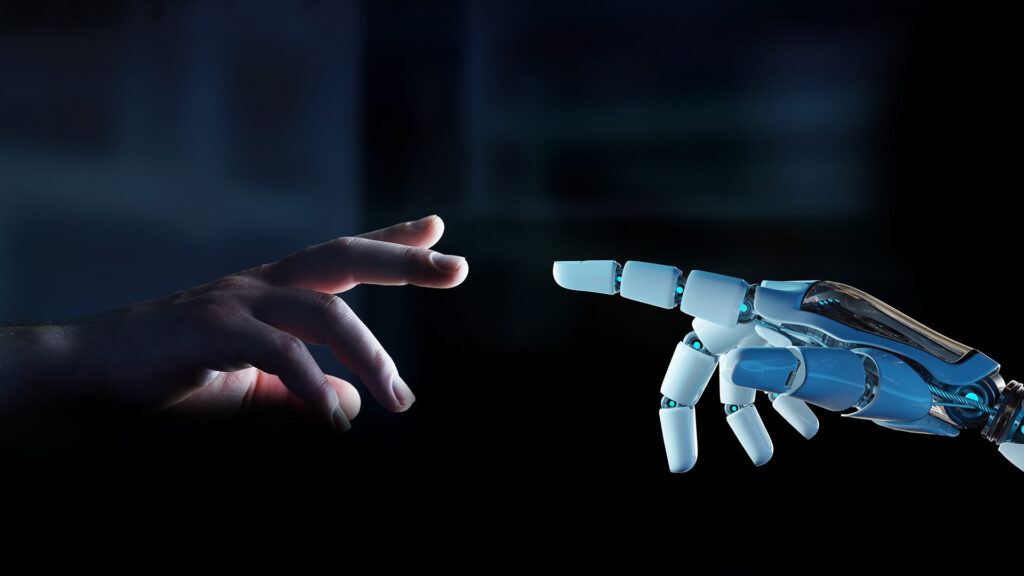
“She’s gorgeous.”
“She’s a beauty.”
“That’s a sexy car”
When it comes to talking about cars, we’re somewhat used to this kind of language. As a society, we have sexualized things like motorcycles or fast cars. It’s steeped in our culture and language - from the big screen to casual conversation, hearing someone refer to a Corvette as sexy doesn’t seem too out of the ordinary.
Mechanophilia can be described as the love or sexual attraction to computers, cars, robots, androids, washing machines, or other domestic appliances, lawnmowers, or other mechanized gardening equipment. In simple terms, mechanophilia is the sexualization (and/or sexual relationship) between living organisms and machines.
Some people associate mechanophilia with car fetishes, but they are different. Having an automobile fetish is quite specific, but mechanophilia falls under a much more broad spectrum of machines. So, all automobile fetishists could be considered mechanophilia fetishists, but not all mechanophilia fetishists can be considered automobile fetishists. (What a tongue-twister!)
Individuals who identify with this fetish may require the presence or use of a machine to become sexually aroused and/or satisfied.
Is mechnophilia legal?
When it comes to being arrested for sexual relations with machines, there are actually quite a few headlines. Like this one. Or this one. And this one.
What do they all have in common? Well, sex in public. In each one of these illegal scenarios, the sexual relations between a person and their machine was in a public place. Charges for lewd behavior, public indecency, and public intoxication are riddled throughout the articles.
Now - we all know sex in public is super hot.
But it is indeed illegal to get it on (even with a machine) in public. So whatever you’re doing and whoever you’re doing it with (whether it be a woman or machine), doing the dirty deed in public is maybe not always the smartest choice, especially when you can’t exactly be discrete with this one.
It is important to note that in some countries, mechanophilia can land you on the sex offender registry. For example, in 2007, a Scotland man was caught by hostel employees trying to hump his bike. In this case, he was arrested.
Reading some of the articles I linked above, you can almost hear the disdain and judgment coming from the person typing the article. As with any sort of taboo fetish, mechanophilia has been criticized and stigmatized for a long time now.

While there aren’t many studies on this particular fetish, let’s look at some statistics that show just how important machinery has become in modern-day life.
According to a 2019 survey, 96% of Americans own a smartphone of some kind, and additionally, nearly three-quarters of U.S adults own a desktop or laptop.
According to another 2019 article, the average American spends up to 18 days per year in their cars. Interestingly enough, 64% of individuals surveyed said they considered their car “a friend” and 21% said they’d rather spend a night in jail than see their car wrecked in an accident.
In that study, 7 out of every 10 people said they had especially fond memories of their car and 45% of people said they have shed tears when parting with a car in the past.
It’s a spectrum, like everything else.
With all of this, it becomes clear that machines (cars and smartphones being used as examples) are not only things we find valuable to have but they can also have a significant emotional attachment for many people.
According to this Psychology Today article:
“Some mechanophiliacs enjoy the engineering aspect of their object (how it works, how it moves, how it was built). While others are fascinated by the effect it produces (for example, the noise it makes, the warmth that comes off a drying machine).”
It can go beyond sex.
The article goes on to explain a few things:
Not all mechanophiliacs are the same (of course), but for many, the fetish goes beyond sexual arousal and satisfaction to something more intimate and personal.
When it comes to mechanophilia, one of the most common things you see is a sexual attraction to or an intimate relationship with a vehicle of some kind. As I’ve said before, referring to our cars as “sexy” or “beautiful” (at least where I’m from), is somewhat normal.

But the sexualization of cars goes well beyond the occasional boastful nod to their beautiful aesthetic. Cars have been coupled with sexual language and references for so long now, much of the time without us even batting an eye at it.
A good-looking car being referred to as a “babe magnet”
Time and time again you see it being referenced: “buy this car, women will think you’re sexy.”
From the “Best Babe-Magnet Cars” articles to the “Top 10 Cars Women Love Seeing Men Drive”, there has always been this subconscious sexuality given to the vehicles we drive.
Things like this have essentially infused our idea of a good car with our idea of being desired, lusted after, and wanted.
Putting scantily clad women next to beautiful cars in showcases was also a thing.
You’re watching Wheel of Fortune (or some new, happening game show that doesn’t totally age me), and the grand prize is a stunning (see, I just did it - adding sexual flare to describe a car) red Corvette. Who’s next to that Corvette? Likely a woman in a tight dress and a pair of black heels.
Having beautiful women show off grand prizes like cars has been something game shows and contests (even car dealerships) have been doing for ages now - and I’ve never really stopped to think about just how strange that is.
The “damsel in distress” needing help with her car is both a porno trope and a call for “manly men” to save the day.
From Megan Fox bending over a car hood in Transformers to Jessica Simpson using the “sexy girl stuck on the side of the road” trope as a distraction to steal moonshine, this one has been done to death. And yet, you bet the next car movie will have a scene just like it.
And while we’re pointing things out...the idea of the “sexy mechanic” is another porno waiting to happen.
Attaching the feeling of “savior manly man” to knowing your way around a gearbox is yet another way vehicles have been sexualized and internalized by the media. The idea that men are somehow more manly if they know how to fix a car is something people eat right up (myself included, because who doesn’t love the thought of a muscular man in a dirty v-neck shirt standing over a car hood).
“You might say we’re in the midst of a sexual revolution. The advancement of technology and the evolution of how we experience sex and sexual pleasure are intertwined, so it seems only logical that one will always influence the other.”

This is a quote from our “digisexuality” article (which you can read here) - and I just had to add it in here because it so perfectly sums up the “theme”, if you will, of this article: we use technology and machines for sex all the time (vibrators, using video cameras to record it, webcams to perform it live, etc). Maybe mechanophilia is just one step further.
I am sure when the first patent on “teledildonics” (the ‘interactive virtual control of sexual aids’) was launched in 1998, there were loads of people who thought that was the most bizarre and taboo thing out there.
Fast-forward 20 years and we’re talking about vibrators that literally track your orgasms with an app and applications that let you “swipe right” to find your next hookup.
With technology (or mechanics), it seems as though we will always find a way for it to help us get off.
Although there are very few articles written on this topic, the rise in digisexuality and related fetishes as well as the fact that taboo fetishes, in general, are becoming more widely accepted and talked about, I suspect there will be an uptake in articles (like this one) that shed light on subjects many are too nervous to broach, even if interested.
No matter the kink or fetish, there should be information out there for it. People are naturally curious, especially when it’s something that feels wrong. I would argue even if it’s something that’s wrong (like non-consensual rape fantasies, etc) - the more information that is available on this topic, the more people could seek information that would lead to getting help when they need it.
When you think objectively about becoming sexually aroused by or having an intimate relationship with a machine, it can feel strange. But when you add context to the situation, it slowly becomes a clearer picture that you can begin to understand.
By far, one of the most “normalizing” things I’ve seen that touches on mechanophilia could be the movie “Her”.
This movie depicts Theodore, a sensitive man who was left heartbroken after his marriage ends, becoming fascinated with a new operating system which, throughout the movie, develops into an intuitive and unique entity.
During the movie, Theodore quickly finds himself drawn to the voice of the artificially intelligent operating system, Samantha, eventually finding himself in love with the OS. Of course, this causes him great joy but also immense doubt and insecurity.
A technological advance that was designed to meet someone’s every need by mere spoken words...when you think of a man falling in love with a computer, it seems strange - but when you put it that way, it becomes much more believable.
While this may look, at first glance, like a totally different story than say, falling in love with a car or your vacuum cleaner...is it really? While the operating system does seem to have a personality, as the coding allows her to learn and develop as their relationship does, movies like this really allow us to have a look inside these kinds of fetishes and feelings.
One review from the Atlantic, of this movie, explains: “Gentle, playful, easily wounded yet infectious in her enthusiasm, Samantha [the OS] is one of the more recognizably human characters of the movie year, binary code or no binary code, which of course, was [the director’s] point.”
Cars, lawnmowers, tractors, dishwashers, washer and dryer machines, dildos, sex robots, AI machines...they’ve all been created by humans. They’ve been infused with our thoughts, made to detect and satisfy our needs (sexual or otherwise)...in a way, many machines could be considered part of our lives.

Nik Gunderson, an art director, and performance artist who has touched on the sexuality of mechanics through his art explains:
“Attachment to things used to be normal. People value books, photos, clothes that remind them of important events and close people. The range of feelings that a person used to feel to inanimate objects has expanded with the development of artificial intelligence and robotics. It turned out that machines can be loved, wanted…”
I’ve got to say - he makes a very valid point.
The future of artificial intelligence will change everything.
As various forms of AI take on new roles in society, from being tools we use to more intricate, complex systems that drive our cars, for example, our vision of technology changes. A new kind of partnership (or relationship, even) with our technology is forming as new ways to incorporate AI systems into our lives are making things easier, safer, more practical than ever.
Along with this changing tide will inevitably come a normalization of the kinds of ways we rely on this new technology. Eventually, we will build trust in these new AI systems that are being invented. Then we will rely on them to satisfy our needs (to do factory jobs or to parallel park when we would likely hit the curb if we tried ourselves).
Those feelings will eventually evolve into something more intimate and personal than I think most of us can envision right now.
According to Harvard Business School professor Frances Frei, one of the key components in establishing a relationship between two people is empathy. If AI systems are built with algorithms set for emotional intelligence, I think the entire world will be developing new kinds of personal relationships with their machines.
The combination of HI (human intelligence) and AI (artificial intelligence) will take us one step further.
Human intelligence is unique in its unparalleled ability to design, create, modify, and adapt. Combining that with artificial intelligence could be one of the most consequential technological developments of our time and in history, according to this article published on Tech Crunch.

“Engineers are now programming cars using subtle ethics models to determine, in situations where an accident is unavoidable, whether to hit a pedestrian or to veer off the road and jeopardize the driver’s life,” explains the author of the article.
“Ideally, such technology evolve decision-making abilities can flourish alongside our evolving human intelligence to allow us to rethink assumptions, reframe possibilities, and explore new territories.”
Objectophilia refers to a person being sexually (and/or romantically) attracted to an inanimate object. Sound familiar? Mechanophilia and objectophilia are fairly similar - but it’s important to note the difference: mechanophiliacs are also objectophiliacs, but not all objectophiliacs are mechanophiliacs. (Wow, this article is full of tongue twisters, isn’t it!?)
Some people love inanimate objects like the Statue of Liberty or a beautiful oak tree - and some people fall in love with their cars.
What is animism and how does it relate to mechanophilia?
Animism is the belief that inanimate objects (such as cars, plants, buildings, etc), have a living soul or spiritual essence. Animism may be one of the most common reasons why individuals feel a connection to a car or a bike or a stunning old oak tree.
Really, the idea that inanimate objects have some kind of energy or spirit behind them isn’t that strange. How many people have felt “drawn” to buy a certain house, to make a certain purchase, to travel to a certain place without being able to really put your finger on why you feel compelled to do these things?
When it comes to car romances or fetishizing a vacuum cleaner, I personally don’t see the appeal but I also don’t see why it would be a problem, either. As long as you’re not making love to the tailpipe of your Chevy in the middle of a busy intersection, I don’t see why mechanophilia should be as criticized and abnormal as it’s been deemed by society.

Be safe and be smart.
Regardless of your kink, be safe. Don’t do anything that will put you in harm’s way (in this case, inserting something into you or inserting yourself into a machine that could be dangerous) and don’t do anything that risks getting you into trouble (like initiating sexual relations with a machine in public where you could be charged with public indecency).
Be respectful of others.
Everyone has their thing...me, for example, I like to be choked, I like a French accent and I’d likely do just about anything for a hockey player in full gear. Yeah, my tastes might be strange to some - but if that’s the case, just don’t look over here. As long as you do your thing respectfully and discretely (which is my next point), there shouldn’t be an issue. Kink-shaming is so last decade, anyways.
A little discretion goes a long way.
As I said, a little discretion when it comes to your kinks and fetishes (especially if they tend to be a bit more controversial) can really help your cause. That being said, spreading awareness and finding comfort in a community (which is my next, next point) is really helpful in feeling unashamed of your sexual desires and for spreading accurate information about super niche topics such as mechanophilia or objectophilia.
Finding others who share your fetish can be really helpful.
One piece of advice I’d give to anyone (mechanophiliac or not) is that there is safety, strength, and reassurance in community. Finding people who feel the same things you do, who want the same things you do, and who normalize what it’s like to be someone, let’s say, who is sexually attracted to cars, can do wonders for your self-esteem, mental health, and your sex life.
So much of the time, the difference between a perversion and a trendy kink is the publicity and information surrounding it.
A quote from that Nik Gunderson page really made me pause during my research of this topic: “At first, sex with machines may seem like a perversion, but as soon as any magazine like Cosmopolitan publishes an article entitled ‘I had sex with a robot, and it was great’ - many people go for it.”
This is why I find it so important to cover relatively “niche” kinks, fetishes, and topics surrounding our sexuality. The more accessible, reliable information out there, the more normalized and less sensationalized things like this can become.